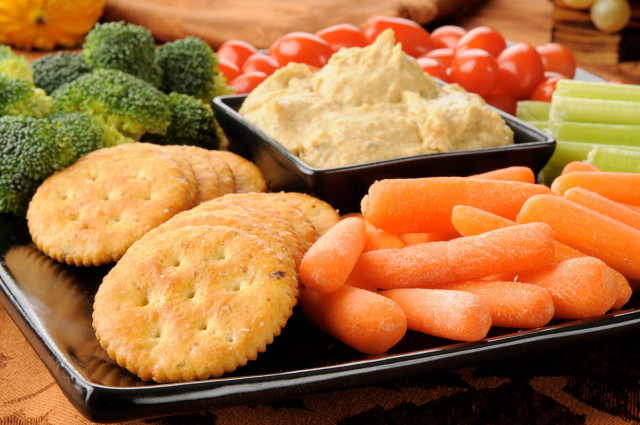5 tips for healthy snacking
Find out whether your between-meal habits are beneficial or detrimental

What you eat as a snack and when you eat it plays an important role in your diet and health. PHOTO: LIVEWELLMAGAZINE.ORG
However, it is something that needs attention, especially for those who are watching their weight. According to US News & World Report, here are five tips you can use to ensure your snacks stay healthy:
1. Have a snack only when you’re hungry
 PHOTO: THE FRUIT DOCTOR
PHOTO: THE FRUIT DOCTOROften, we turn to snacking not because we are hungry, but because we are bored or stressed. So, before gorging on something, ask yourself if it’s really hunger that is pulling you towards that snack. Another important thing to keep in mind is the timing of your snack. Try not to snack close to meal times like right after breakfast or right before dinner.
What you can do instead is plan your snack times according to your needs and when you are actually hungry. Active people need more snacks as compared to inactive people because their bodies are burning more calories. The best time to snack is when you have a gap of five hours or more between meals.
Read: Feeling tired? Here are 10 reasons why you’re constantly worn out
2. Have snacks, not treats
 PHOTO: TOM BURLISON
PHOTO: TOM BURLISONSnacks are supposed to provide nutrients, like calcium and protein, to your body between meals to keep you healthy; whereas a treat provides little to no nutrition. Most junk foods are treats and not ‘snacks’ so try to avoid them as they are just empty calories for your body. Instead, choose healthy foods like yogurt, fruits and nuts for snacking.
3. Go easy on carbs
 PHOTO: GREEKYOGURTDIP.ORG
PHOTO: GREEKYOGURTDIP.ORGJust eating foods rich in carbs will make you feel hungry again soon, so couple them with protein or healthy fat for a more satiating snack that keeps you full till the next meal. Protein and healthy fats tend to slow down the rate of sugar absorption from carbs which contributes to this feeling. Try to combine different types of food to avoid overeating, like fruits with some non-fat yogurt.
4. Keep a watch on your portions
 PHOTO: BARIATRICCOOKERY.COM
PHOTO: BARIATRICCOOKERY.COMEven healthy snacks can contribute to weight gain if not eaten in the right amount. An ideal snack should contain around 125 to 250 calories, so be watchful of the portions you consume.
It is easy to munch on too many fruits or nuts – almonds, for example, are an excellent snack when taken in moderation, but too much of them will build up calorie-intake (three handfuls contain around 500 calories and 42 grams of fat). Make a habit of measuring your snacks and making a note of the calories you are consuming.
Read: 5 fruits and vegetables that may make you fat
5. Don’t snack mindlessly
 PHOTO: CAMPUSRIOT.COM
PHOTO: CAMPUSRIOT.COMSnacking mindlessly, like in front of the TV or laptop, leads to overconsumption of food as you are unaware of how much you are eating or even of the flavour of your food. Don’t sit with a bag of chips in front of the TV. Instead, take the exact amount of food you need in a container and enjoy it in a calm environment, away from electronic devices so you can savour every bite.



















COMMENTS
Comments are moderated and generally will be posted if they are on-topic and not abusive.
For more information, please see our Comments FAQ